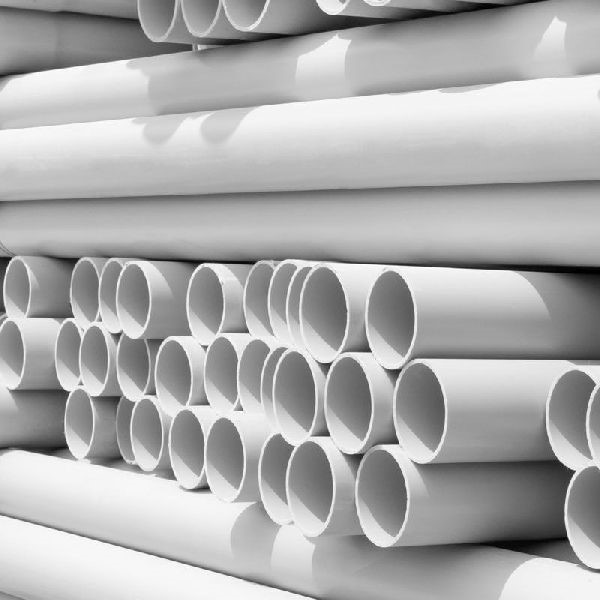Polyvinyl Chloride (PVC) is a versatile polymer well suited for a variety of pipe applications ranging from large sewer piping to residential drain waste vent (DWV) piping, as well as smaller potable water piping and electrical conduit. Applications such as DWV are not pressure rated, which reduces the impact resistance required to function in the application. Others, such as residential potable water, carry ratings appropriate to their intended application. More recently, chlorinated PVC (CPVC) has been approved in some municipalities for use in hot water piping because of its superior high-temperature properties versus PVC.T
Tan Ky Mineral's ground calcium carbonates (GCCs) and precipitated calcium carbonates (PCCs) contribute to the ultimate performance properties of this wide variety of piping applications. Product choice depends on the specific application and the property requirements of that application. For maximum property development and formulation flexibility, our surface-treated carbonates are designed to give good dispersion along with excellent incorporation in the polymer matrix.
Calcium carbonate improves the base properties of polyvinyl chloride by adding stiffness to the polymer matrix and improving impact resistance as particle sizes become smaller. Calcium carbonate also improves compounding performance by helping disperse various ingredients into the PVC powder blend and improves processing by making polymer flow more homogenous.
The relationship between a calcium carbonate’s particle size and the impact strength of the finished rigid PVC part also applies to extruded pipe and injection-molded fittings. The object is to produce an acceptable part at the lowest possible cost. This is achieved by minimizing the level of ingredients that add cost to the PVC formulation, such as impact modifier.
The ideal is to eliminate the use of impact modifier. This can be achieved in larger diameter pipes using a formulation containing a 2-3 micron calcium carbonate. The impact specification is usually more difficult to meet in a small diameter pipe, thus a finer calcium carbonate must be used—usually in the range of 1-2 microns. In applications that require an impact modifier, the amount of modifier can be minimized by using a very fine, submicron PCC such as Calofort® S, or Ultra-Pflex® PCCs. This approach is especially useful in demanding applications such as pipe fitting formulations and large diameter corrugated drainpipe.
PVC Pipe
In modern life, we take the long-term performance benefits of PVC pipe for granted. PVC pipe functions without corrosion or leaking and repairs are simple to perform compared to cast iron or copper piping. CMT’s calcium carbonates are certified for plastics piping.
Impact Strength Fundamentals: Particle Size Effect and Impact / Stiffness Balance
Particle Size and Impact Strength
The size of the filler used can have a dramatic effect on the impact strength of a PVC compound. The graph below shows the relationship between impact strength and filler particle size for calcium carbonate in rigid PVC.
The relationship is not linear. When the carbonate size is larger than 1 micron, the impact strength is relatively low. However, as the carbonate size is reduced into the submicron range, the impact strength of the compound increases dramatically.
The low impact strength imparted by particles larger than 1 micron is a function of points of weakness in the polymer matrix. Likewise, the submicron particles impart enhanced impact strength because they are points where stresses can be relieved in the polymer matrix.
Particle Size Distribution and Impact Strength: Precipitated vs. Ground Calcium Carbonates
Considering the median or average particle size alone is not enough to ensure high impact strength. The impact strength of PVC or other polymer is limited by the size of the largest particles present. Two fillers with equal median particle sizes, but different particle size distributions, will confer different impact strengths.
An advantage of precipitated calcium carbonates (PCCs) over ground calcium carbonates (GCCs) is the narrower particle size distribution of the PCCs. The particle size distributions of a PCC and a GCC of the same median particle size are compared in this plot:
The precipitated calcium carbonate has fewer large particles than the ground, and the size of the largest particles is smaller for the PCC than for the GCC. This can be seen in scanning electron micrographs. Here are a PCC and a GCC, each with a median particle size of 0.7 microns:
Specialty Minerals Inc.’s (SMI’s) submicron PCC fillers such as Calofort® S, and Ultra-Pflex® PCCs are particularly effective in building impact strength in rigid PVC because of their steep particle distribution curves. The PCCs do not have the large particles found in the GCCs, reducing stress concentrator points in the polymer matrix.
Impact/Stiffness Balance
In theory, one can get the best of both worlds with a high-aspect ratio filler of very small particle size because impact strength is a function of particle size and stiffness is a function of aspect ratio. Unfortunately, it is very difficult to produce a filler with both properties because the critical size is the largest dimension of the filler particle and a very small particle, in order to have a high aspect ratio, would also have to be extremely thin, thus becoming quite fragile.
· LikeRigid or Unplasticized PVC – Pipe & Fittings Using VMPC Ground Calcium Carbonates
· Comment
· ShareShare Rigid or Unplasticized PVC – Pipe & Fittings Using VMPC Ground Calcium Carbonates

Tan Ky Mineral offer calcium carbonate with top cut size from 5 microns for PVC Pipe making






